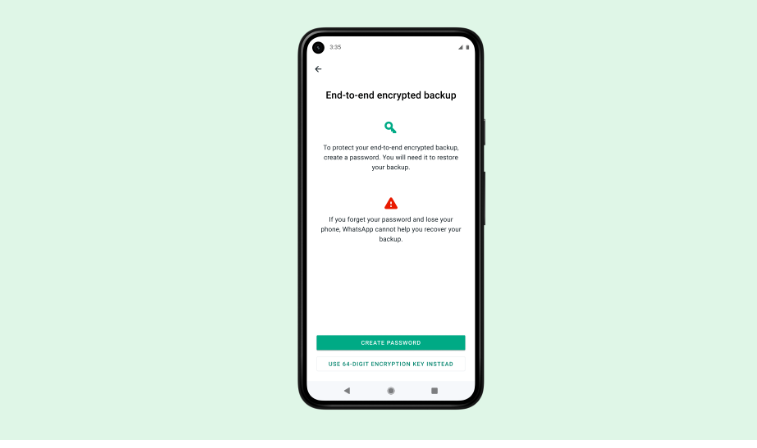WhatsApp celebrated the anniversary of the end to end encryption security feature roll out on April 5, 2022. A security technology that was created to protect people’s privacy and promotes people’s ability to communicate freely.


Head of WhatsApp, Will Cathcart, in his Twitter post yesterday, while celebrating this achievement, explains the feature updates, its iteration process and future plans.
One of the newest updates of the security feature on WhatsApp is the addition of end-to-end encryption feature for WhatsApp backups, i.e. the ability to send media with a one-time viewing option and the new mode of messages disappearing by default.


End-to-end Encryption on WhatsApp
End-to-end encryption is a secure means of communication. It scrambles messages in a way that only the sender and receiver can decipher it.
For WhatsApp, this rollout is not just an encryption of messages between the user and the service team, like some other messaging service, it is a message encryption between the sender and the receiver only. No information discussed can be eavesdropped or accessed even by WhatsApp or any other government bodies.
WhatsApp have been encrypting their messages since 2014 but became fully accessible across the service in 2016 after teaming up with nonprofit software group, Open Whisper Systems.
Meta CEO, Mark Zuckerberg, who acquired the platform in 2014 said the addition of end-to-end encryption for chats backup is one of the final steps in the completion of the encryption experience.
Message backups saved in a cloud service can now be encrypted and inaccessible by a third party. This goal is to give the users an unmatched security level than other messaging service.
End-to-end encryption: Privacy or Security
Is widely end-to-end encryption service appreciated? Cathcart tried to answer this in the congratulatory thread post.
He explained that Business for Social Responsibility, BSR, has carried out an assessment plan weighing the pros and cons of the end-to-end encryption and its impact on human right, hoping that the assessment report is convincing enough to understand the importance of the end-to-end encryption in the same context as the fight for human rights.
In October 2019, Meta commissioned BSR to undertake a human rights impact assessment (HRIA) of extending end-to-end encryption across all Meta’s messaging services including WhatsApp. The assessment was taken from October 2019 to September 2021 and addressing the two opposing groups that encryption debates about i.e. privacy and security alongside the interconnected human rights that can be negatively or positively impacted by the end-to-end encryption messaging.
The BSR assessment made a table list of the pros on human right and the infringements of human rights by the end-to-end encryption messaging. Although, there are more points allocated to the opportunities than the risks, however, it is very clear that users can and may abuse this end-to-end encryption service with its privacy protection.
Will Cathcart says in his Twitter post:
The ability for people to communicate privately is a right worth fighting for. We’ll continue to loudly defend it so human right defenders as well as family groups, businesses and organisations can communicate freely.
Will Cathcart, Head of WhatsApp
Other messaging service providers use end-to-end encryption, including Facebook and Zoom – other services like Google also use E2EE. These providers have faced controversy around the decision to adopt E2EE, because the technology makes it harder for providers to share user information from their services with authorities and potentially provides private messaging to people involved in illicit activities.






